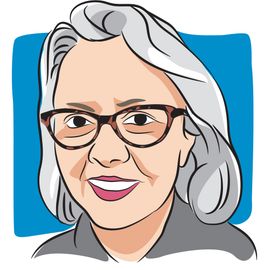- About Us
- Advertise / Support
- Editorial Board
- Contact Us
- CancerNetwork.com
- TargetedOnc.com
- OncLive.com
- OncNursingNews.com
- Terms & Conditions
- Privacy
- Do Not Sell My Information
- Washington My Health My Data
© 2025 MJH Life Sciences™ and CURE - Oncology & Cancer News for Patients & Caregivers. All rights reserved.
A Cancer Survivor Rethinks Cancer Ghosting

Felicia Mitchell, retired from college teaching, is a poet and writer who makes her home in southwestern Virginia. She is a survivor of stage 2b HER2-positive breast cancer diagnosed in 2010. Website: www.feliciamitchell.net
While cancer patients can experience ghosting, and cancer ghosting is real, it is possible to revisit relationships to avoid putting blaming the person who appears to be slipping away.
Early on, a member of my breast cancer care team explained how friends and family members may drift when we are diagnosed. Individuals have different ways of dealing with a diagnosis, acting “funny” or even detaching. It was helpful for my caregiver to share this information because it prepared me for a ripple effect of cancer. While cancer ghosting is real, a recent loss has taught me that it is more nuanced than one might think.
This recent loss filled me with regret for not trying harder to maintain a friendship, which seemed to drift at the time of the cancer diagnosis. For years, I blamed cancer for the lapse, though in retrospect that blame seems misplaced. Now, too late, I remind myself of the old adage that correlation is not causation. This loss, however, has made me think of several ways patients with cancer might reframe emotional responses to ghosting even as we recognize that it does happen.
It might be helpful, to give “ghosters” grace, to consider why they seem to abandon us when we are sick. One reason people may shy away from us revolves around their fears. People may worry that they will say the wrong thing, so they say nothing at all. There was a time when talking about cancer was taboo, and I think that taboo still lingers. With people who have trouble talking about cancer, once we are healed and have the emotional space, we can set a new model of behavior. Or, if it works for you, try it while you are in the midst of your treatment.
Another reason people pull away from somebody with a grave illness is simply the fact that they do not have the emotional range. Relationships are based on all kinds of shared moments, and joyous connections may become heavy when a challenge is introduced. If we remember that friends come and go at different times in our lives, we might wave goodbye mentally without condemning these old friends. Just as a friend might detach when moving across the country, one might detach when we move into cancer country. Assuming that a tie is cut forever, however, is not the first assumption that should come to mind when we are emotionally strained by cancer.
Yet another reason a person might ghost a connection with cancer is simple: self-survival. Pulling away from a close friend or family member may help a person to cope with their needs. I know self-survival played a role in a few strained relationships during my cancer journey. Fortunately, the need those people had to detach for a bit was trumped by their need to admit, eventually, that I needed their support. I am a patient person. It helps me to remind myself that if my friend had not passed away this year, we would have found a way back to each other.
I think there is one more reason somebody might appear to ghost us after a cancer diagnosis, with emphasis on “appear.” We ourselves may just be feeling very vulnerable and inclined to see a slight when no slight is intended. Cancer is so all-encompassing that it has the power to make a person feel self-centered. In retrospect, I believe that is what happened with my friend I am currently mourning. While I was waiting for her to check on me, I should have found a way to check on her. Sometimes people live busy and complicated lives, and we should never assume a detachment is only about us.
My suggestion is if you have been abandoned after a cancer diagnosis, or feel you have, pick up the phone or a pen, even if two years or 10 pass before you are able to. Ask if you have, in fact, been a bit of a ghoster yourself. An old friendship worth rekindling while both parties are alive is worth the extra effort.
Felicia Mitchell is a survivor of stage 2b HER2-positive breast cancer diagnosed in 2010.
This piece reflects the author’s personal experience and perspective. For medical advice, please consult your health care provider.
For more news on cancer updates, research and education, don’t forget to subscribe to CURE®’s newsletters here.
Related Content:



